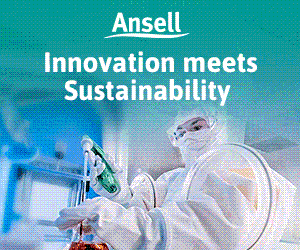Schoeller Allibert has commented on the changing role of hygiene for food processors, which the business believes points towards the future of food manufacturing.
Nick James, Sales Director at Schoeller Allibert UK, said: “The food manufacturing sector has a long history of hygiene development and safe handling protocols. That hasn’t changed; the difference we see today is that this is becoming much more visible and important to the consumer. In today’s competitive food retailing sector, where the consumer factors hygiene into purchase decisions, food and packaging hygiene moves from an obligation to a competitive advantage when managed well.
“In essence, ‘Hygiene 2.0’ is well communicated food hygiene and safety management, and we are seeing clear movement in how food safety is being framed by the public. Today, there is a real pressure to deliver hygiene with traceability, transparency - and now visibility.”
The company has put food processing hygiene at the forefront of its product development with the launch of Purity Line, a range of containers that incorporate antibacterial materials designed to inhibit the growth of bacteria and moulds.
The material within the plastic reportedly migrates to the surface of the container and disrupts bacterial growth by interfering with enzyme production. This is aimed to stop the bacteria producing energy, and disrupt the cell’s DNA, preventing the bacteria from replicating.
The range of food safe and pharmaceutical containers provide permanent protection against E. Coli and Staphylococcus Aureus, Schoeller claims.
The line’s antimicrobial technology can be incorporated into the manufacturing process of popular totes, the company says, including JumboNest and Combo Excelsior.
Nick concluded: “‘Hygiene 2.0’ is making food processing supply chains more transparent, and the Covid-19 pandemic has accelerated this need. Food hygiene is no longer treated as purely risk avoidance or a box-ticking exercise; it can be communicated to the consumer as a competitive edge. Brands that can use their food hygiene protocols as part of the brand or product identity are set to find powerful commercial advantages on the table.”




